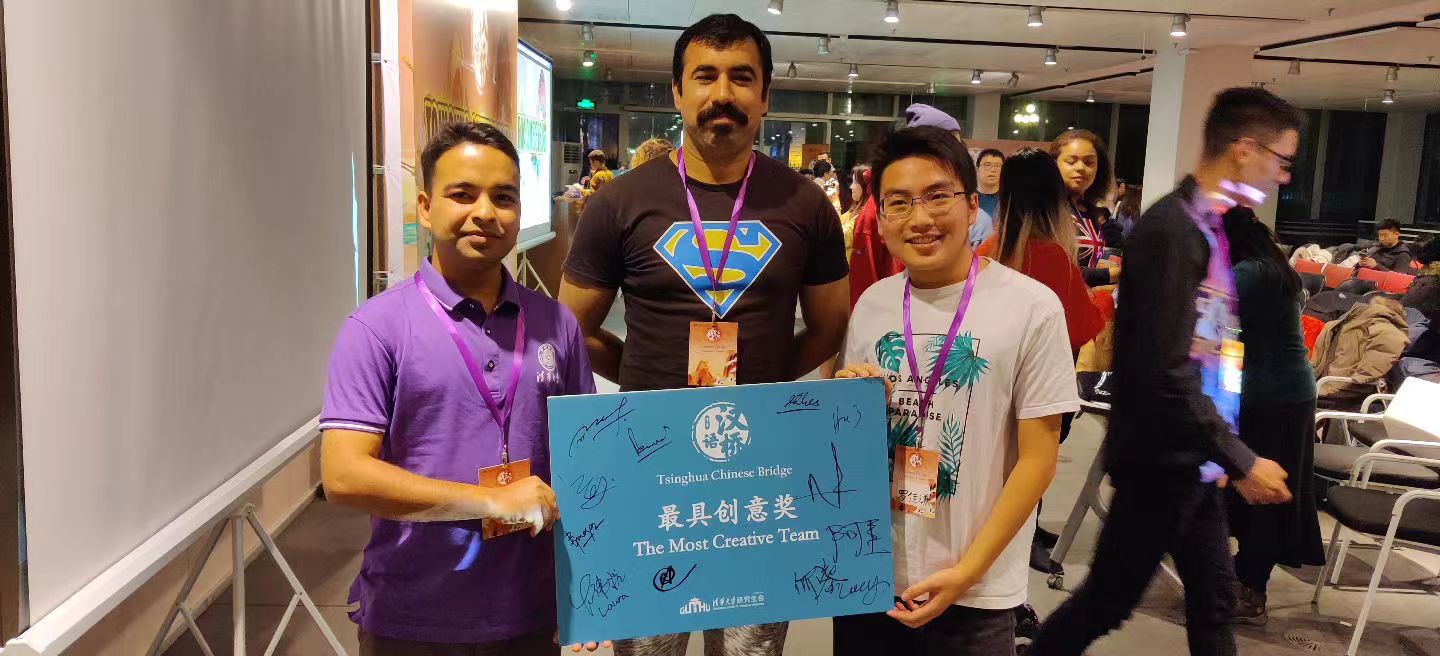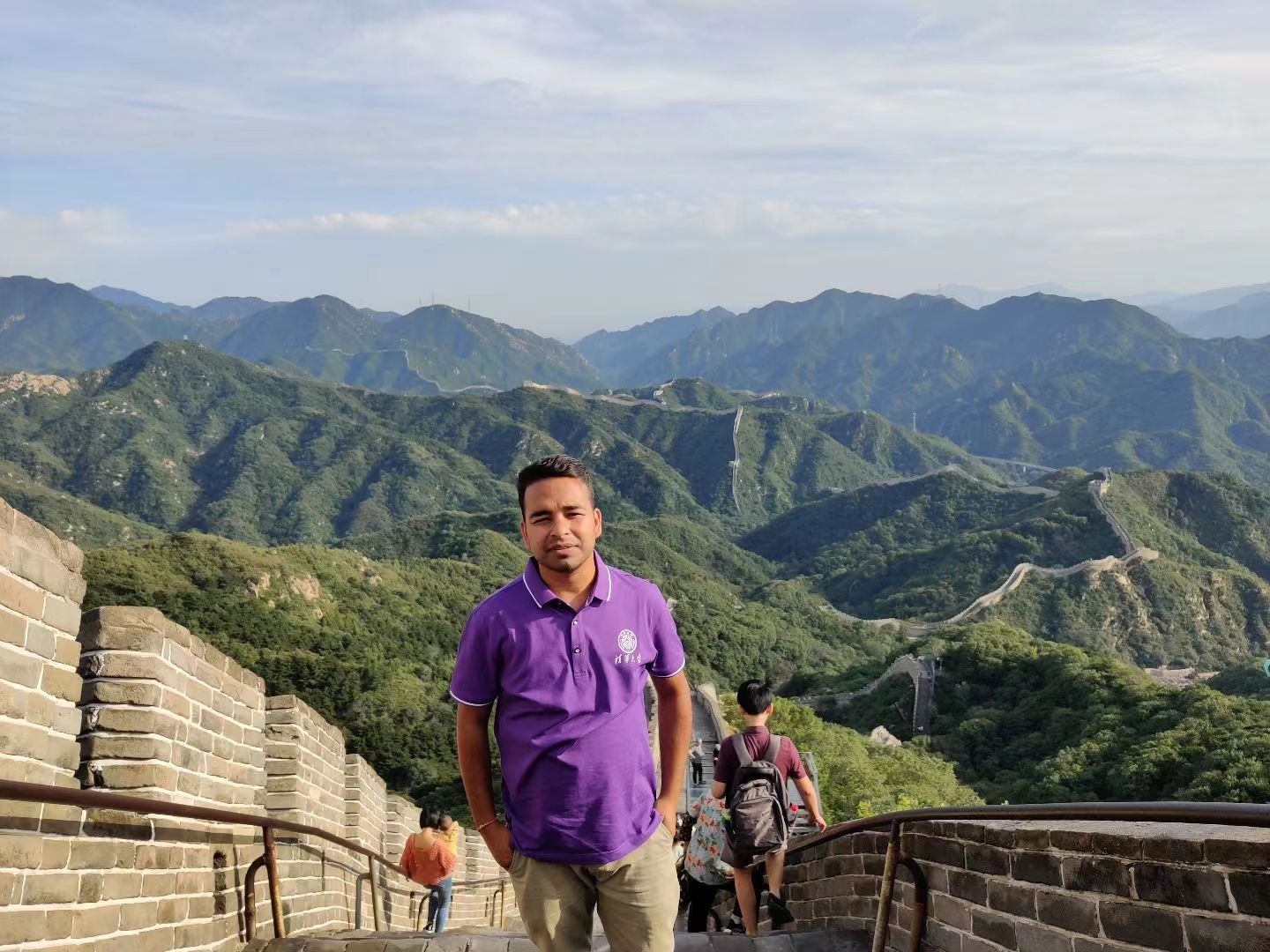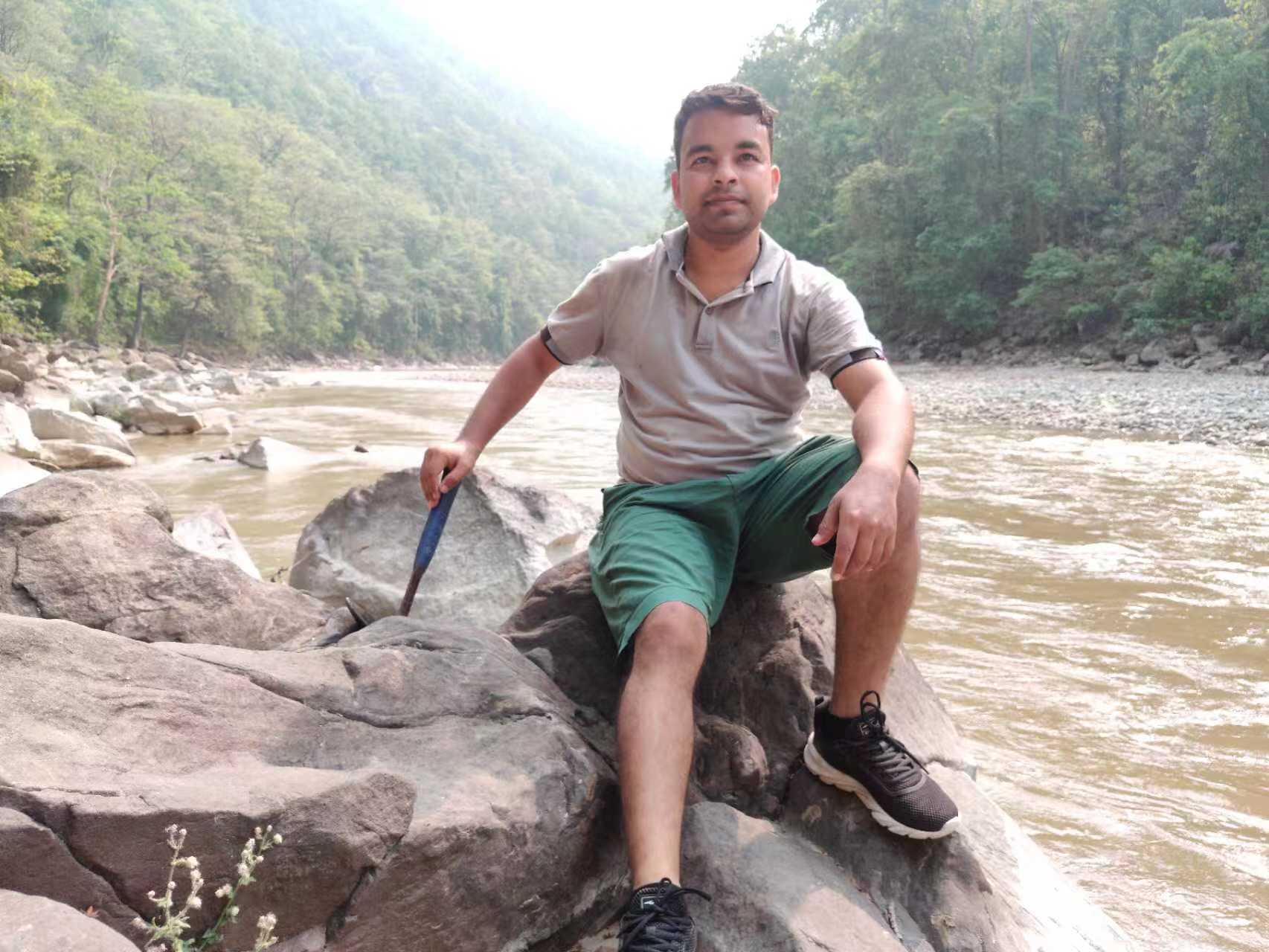For growing up in a disaster-prone country like Nepal, Laxman Kafle is all too familiar with the devastating impacts of landslides — not to mention the loss of lives landslides cause. After graduating with a master’s degree in geotechnical engineering, he wants to use his technical skills and expertise to help his country reduce the risks of landslides.
“Right now, several hydropower stations with large water reservoirs are being built in Nepal. But as most of these reservoirs reside along the Himalayas, rainfall and water level fluctuation in the reservoirs could trigger catastrophic landslides, and the landslides could cause other chain disasters such as flooding along the reservoir and downstream, causing huge loss of lives and properties,” said Kafle. “So, as a geotechnical engineer, I want to continue my research on identifying potential landslides and their causes and recommend necessary mitigation measures to stakeholders.”

Kafle is a master’s student in the Department of Hydraulic Engineering at Tsinghua University, with a research focus on rainfall and reservoir water level fluctuation-induced landslide in a reservoir area and its cascading effects such as landslide tsunami and inundation. He was enrolled in 2019.
Kafle said he was inspired to come to China for higher studies as China, being a landslide-prone country with large dams in the mountains, could offer valuable lessons for Nepal in landslide prevention and mitigation.
During his three years at Tsinghua, as part of his research, he has done case studies of the Bianjiazhai landslide and the landslide at Suofengying Reservoir in China, respectively, exploring their root causes and possible ways to avoid such disasters in the future.

In fact, his case study of the Bianjiazhai landslide was recently published in the journal Engineering Geology, an achievement for which he credits his supervisor Professor Wenjie Xu and other lab mates who assisted him throughout his research.
After studying on campus for a semester, Kafle returned to Nepal in 2020 and has been pursuing his studies online since then. In these last three years, he believes he has grown as a researcher and a person. He thanks his professors, his friends, and the larger Tsinghua community for making his Tsinghua journey a fulfilling experience.

Upon graduation, he will start working at his own engineering consulting firm, offering geotechnical-related services to study landslides in Nepal. In the future, he also aims to pursue a Ph.D.
“My long-term plan is to become an expert in the field of landslide-tsunami research and apply the gained knowledge for the betterment of my country,” he said. “For that, Tsinghua has prepared me well.”
By Guo Lili, Sangeet

